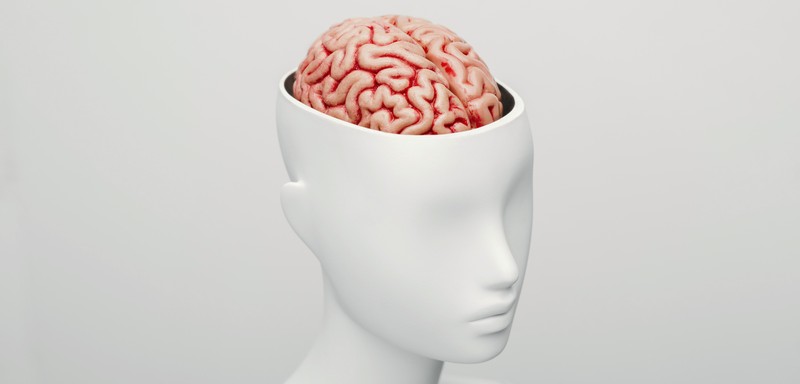

What You Need To Know About Parkinson’s
First, what exactly is Parkinson’s?
Parkinson’s is a progressive neurological condition, which means it affects brain health and gets worse over time. There are many potential signs and symptoms of the condition, and each person can experience them differently. “Parkinson’s is the fastest growing neurological condition in the world,” says Dr Rowan Wathes, associate director of the Parkinson’s Excellence Network. “Its prevalence has doubled in the last 25 years. Around 145,000 people in the UK have Parkinson’s and, as yet, there is no cure.”
Who is at risk?
Parkinson’s is less common in women (men are 1.5 times more likely to develop the condition) but that doesn’t mean women are immune, adds Abbas Kanani, pharmacist and health advisor for Chemist Click. “The average age of those developing Parkinson’s is 60 and men are much more likely to develop it than women. However, women have a higher mortality rate and faster progression of the disease. Plus, men and women respond differently to treatments,” he tells us. Parkinson’s tends to affect those over 60, while early-onset Parkinson’s is defined as beginning before the age of 50. The prevalence of Parkinson’s disease increases with age, and it is estimated to affect one in 40 people who are 85 to 89 years old. People who begin to have symptoms at an older age generally have more severe symptoms and have more comorbid conditions (other health issues occurring at the same time), such as heart disease, lung disease or diabetes.
Is it genetic?
Most people with Parkinson’s have what’s known as ‘idiopathic’ Parkinson’s, continues Dr Bryony Henderson, lead GP at Livi. “This means that the cause is unknown. Most experts believe the combination of genetic and environmental factors contributes to the loss of nerve cells, with 15% of Parkinson’s cases being linked to genetic inheritance. We don’t know why some patients develop Parkinson's disease and others don’t. Even if you do have an abnormality in a gene associated with Parkinson’s, the risk of developing it remains low as other genes may be protective.” Rowan agrees, adding that many people with genetic risk factors for Parkinson’s do not go on to develop the condition.
What are the initial symptoms you’re most likely to experience?
“The three most recognised symptoms are a tremor (shaking), slowness of movement and rigidity or muscle stiffness,” Rowan tells us. However, there are over 40 symptoms and how they first present themselves can vary from person to person, she says. “Someone might start having balance or coordination problems. They may lose their sense of smell or experience gait changes, where they lean forward slightly or shuffle when walking. Other people have fixed facial expressions (or a ‘mask’) due to changes in the nerves that control their facial muscles. They might struggle with low mood and fatigue, or their handwriting could become smaller and difficult to read. Insomnia, apathy and anxiety can also be early signs of Parkinson’s. But with such a range of symptoms, some of them subtle and gradual, it can be hard to connect the dots.”
How do these symptoms change over time?
Parkinson’s causes physical symptoms initially, but problems with cognitive function, including forgetfulness and trouble with concentration, may arise later. As the disease progresses, many people develop dementia, which can cause profound memory loss. “Symptoms tend to be quite subtle to start with, but will worsen over time,” says Bryony. “Difficulty with balance and coordination can develop into difficulty walking, and people can also struggle with their speech. Changes in mental aspects such as personality and behaviour are also not uncommon and can even escalate to sleep problems, depression, memory difficulties and fatigue.” However, no two people are the same, stresses Rowan. “For many people, the condition can take years to progress to a point where it has a real impact on daily life.”
How is the condition diagnosed?
Experts agree that diagnosis is difficult – no single test can identify Parkinson’s and it can easily be mistaken for another health condition. A healthcare professional will usually take a medical history, including a family history, and may carry out a neurological exam. Often, an MRI or CT scan can also provide clarification or rule out other diseases.
What are your treatment options?
“Parkinson’s can’t be cured, but there are different therapies that can help control symptoms,” says Bryony. “These include supportive therapies that help you deal with everyday challenges and medications to manage symptoms. As it affects everyone differently, treatment can vary depending on your symptoms. Treating Parkinson’s can be complex and, to make sure your needs are met, your care will be provided by a team of different professionals (a multi-disciplinary team or MDT). For example, a physiotherapist can advise on exercises to relieve muscle stiffness and improve range of movement and flexibility, while a speech and language therapist can help with speech and if you are having problems swallowing. When it comes to medication, there are three main types commonly used, all of which increase dopamine levels in the brain.”
What are some of the newer treatments that can help?
Rowan tells us that deep brain stimulation is a newer type of surgery used to treat Parkinson’s. “People may be offered it if drug treatments become less effective at easing movement symptoms. A pulse generator (a device like a heart pacemaker) is placed under the skin around the chest or stomach. It is connected to fine wires that are inserted into specific areas of the brain. When the pulse generator is switched on, the electrodes deliver high frequency stimulation to the targeted area. This stimulation changes some of the electrical signals in the brain that cause the symptoms of Parkinson’s.”
How can you support a loved one living with Parkinson’s?
A Parkinson’s diagnosis can be both overwhelming and worrying, so informing yourself and getting information about the condition can be a huge help. If you are looking after a loved one with Parkinson’s, Bryony says patience is key. “The person dealing with the illness will need to adapt to a slower way of life, not just in movement, but also in speaking and communicating, so you may need to adapt with them.” Encouraging a loved one to gently exercise and socialise can also make a difference, she says. “Parkinson’s is a disease that can make a person feel extremely misunderstood and isolated at times, so encourage them to get out and socialise. Interacting with people will make them feel valued and will also bring a sense of normality. At the same time, a short walk every day can make the world of difference. Exercise increases the flow of dopamine through the brain, which instantly increases happiness.”
In your role as a carer, Bryony recommends looking out for signs their condition is getting worse. “Look out for difficulty with speech, walking or mobility problems and anything that doesn’t seem right or ‘the norm’. You can then report this to their doctor who can help keep tabs on the stage the individual is at in their illness.” If you’re looking for a different form of support, Rowan also recommends the podcast, 2 Parkis in a Pod. “Between them, the two hosts have been living with Parkinson’s for more than 20 years. They chat openly and honestly about the challenges and have some great guests giving insights into the condition.”
Are there any lifestyle tips that can help?
Parkinson’s disease has typically been classified as a neurodegenerative disease with treatment focused on managing symptoms. However, recent connections between the brain and gut microbiome have been gaining interest. “The vast population of microorganisms, called our microbiota, that live in our gastrointestinal tract, promote overall health,” says Kim Plaza, technical advisor at Bio-Kult. “When this balance is disrupted, changes can occur on several levels, and new research shows changes in the gut microbiome may play a role in the initiation of Parkinson’s and are linked to certain symptoms, meaning what you eat can make a difference.” Evidence has suggested individuals with Parkinson’s have a decreased abundance of a variety of beneficial bacterial species, but simple changes can make all the difference,” she says…
Eat The Rainbow: “Consuming a wide range of colourful plant foods feeds gut microbes and keeps them happy. Fruits and vegetables also contain antioxidants, which can be useful for calming inflammation and warding off harmful bacteria. Studies show consuming a diet high in fresh fruit, vegetables, nuts, seeds and olive oil is associated with reduced disease progression.”
Think Quality Carbs: “Swapping white, processed carbohydrates for brown, high-fibre varieties will encourage a higher diversity of bacterial species. Processed foods high in salt and additives will provide an opportunity for less beneficial bacteria to thrive.”
Incorporate Fermented Foods: “Foods like kimchi, sauerkraut and live yoghurt have been researched for their antioxidant potential. Fermentation makes food more digestible, meaning these foods can provide the gut with beneficial bacteria to improve digestion and nutrient assimilation.”
Stay Hydrated: “This is especially important in the winter months when we often forget to keep up our water intake. Staying hydrated promotes cognitive health and prevents constipation, which is common in those with Parkinson’s.”
Be Active: “Even gentle physical activity has been shown to increase the abundance of health-promoting gut bacteria, which can ward off bad strains. Parkinson’s UK highlights that being active for 2.5 hours per week may help manage symptoms and is beneficial for mental and physical health. Physical activity is nearly always beneficial when done at the correct level for the individual.”
For more information visit ChemistClick.co.uk, Livi.co.uk and Bio-Kult.co.uk. Further information, advice and support is available at Parkinsons.org.uk and on its free, confidential helpline on 0808 800 0303. Cure Parkinson’s funds clinical trials and preclinical work, which seeks to open new avenues in the search for a cure to Parkinson’s – for more, head to CureParkinsons.org.uk
DISCLAIMER: Features published by SheerLuxe are not intended to treat, diagnose, cure or prevent any disease. Always seek the advice of your GP or another qualified healthcare provider for any questions you have regarding a medical condition, and before undertaking any diet, exercise or other health-related programme.
DISCLAIMER: We endeavour to always credit the correct original source of every image we use. If you think a credit may be incorrect, please contact us at info@sheerluxe.com.

